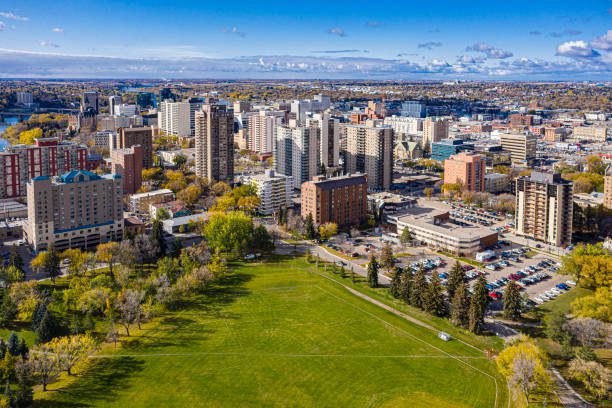The healthcare system in Canada relies heavily on nurses, and there has never been a greater need for nurses with foreign education than there is now!
Because of a labor shortage and an increase in the number of nurses retiring, nursing is one of the most in-demand professions in Canada. And it’s anticipated that this shortage will last!
More nurse positions are now open to immigrants in Canadian communities to close the nursing job gap. RNs can work in various settings, including clinics, rehabilitation facilities, nursing homes, private homes, and hospitals.
This article will discuss reasons for moving to Canada as a nurse, securing a nursing job as a newcomer, and the best Canadian provinces to get nursing jobs.
Reasons to Relocate to Canada as a Nurse
Shortage of skilled nurses in Canada: Labor shortages in nursing will continue for the foreseeable future. Estimates show that, between 2019 and 2028, there will be more than 190,000 job openings for registered nurses (RNs).
However, only 154,000 qualified candidates (including new graduates and newcomers) to fill these positions, creating a nationwide shortfall of more than 36,000 registered nurses.
Nursing is an in-demand job in most provinces: Nurses are in demand in most regions of Canada, such as Ontario, British Columbia, Quebec, Alberta, and Manitoba. Active efforts are underway to recruit and train nurses and make it easier for internationally educated nurses to immigrate to Canada.
Nurses earn high salaries in Canada: Nursing jobs in Canada usually pay well, yet wages vary depending on the province and the National Occupation Classification (NOC) category your career falls under.
In Canada, the average yearly salary for registered nurses is approximately $76,000; however, many RNs make up to $92,000.
How Much do Nurses Earn in Canada?
In Canada, the average pay for nurses varies according to province, specialty, and number of years of experience. According to the Government of Canada’s Job Bank, the median salary for registered nurses and psychiatric nurses is $40 per hour.
The highest median incomes are found in Nunavut ($67.83 per hour), Northwest Territories ($53.23 per hour), Yukon ($45.28 per hour), and Saskatchewan ($44.23 per hour).
Hourly wages over $50 are typical in British Columbia, Ontario, Alberta, and Manitoba, with a more acute shortage of registered nurses. The typical pay for nurse practitioners in Canada is roughly $53.37 per hour, whereas the pay range for licensed practical nurses is $22 to $33.23.
Securing a Nursing Job in Canada

Since most provinces allow you to complete the nursing licensing process outside Canada, you can start looking for your first nursing job in Canada before you arrive. We have compiled some tips to help you find a suitable role:
1. Introduce Yourself to the Local Job Market Requirements
Canadian businesses may have different requirements for nurses than those in your country. Examining job posts for your nursing category is the simplest method to find opportunities for improvement in abilities and acceptable employment.
For example, job descriptions may stipulate that candidates must possess particular training or qualifications to work in a given field of expertise. These can be a helpful place to start if you want to prepare for the workforce.
2. Obtain Additional Qualifications and Skills
To position yourself as a competitive applicant for nursing jobs in Canada, you should invest in obtaining more credentials and developing your skills.
You can get several highly sought-after qualifications before receiving your RN/LPN license, such as first aid, CPR (cardiopulmonary resuscitation), and vital life support.
Let’s say you are currently applying to obtain a nursing license. If so, until you have a nursing license, you can work in comparable unregulated professions like personal support worker, caregiver, or attendant in Canada. This Canadian experience will improve the quality of your CV.
3. Create a Canadian-Style Nursing Resume
Resume formats from your home country may suit the Canadian job market better. The ideal format for your resume will depend on how much practical nursing experience you have.
Many Canadian employers shortlist resumes using an Applicant Tracking System (ATS), so be sure to customize your resume for each job and include keywords from the job description.
4. Check Out Job Search Platforms and Company Websites
Job portals like Indeed, GrabJobs, Glassdoor, Monster, Job Bank, and LinkedIn are excellent resources for job seekers. Keep an eye on the career pages of hospitals, healthcare facilities, and nonprofit organizations that employ nurses by compiling a list of them.
5. Build your Professional Network
In Canada, networking is essential for nurses. Make significant connections over one-on-one coffee discussions by connecting with nurses and healthcare workers in your province on LinkedIn or through professional associations.
Another great way to network with local healthcare professionals is through volunteering. Through networking, you can access employment prospects that might not be advertised.
It enables you to obtain information on the hiring procedures used by particular firms, the employment market, and licensing requirements.
What is the Recruitment Process for Nursing Jobs in Canada?
Employers in Canada use cover letters and resumes to narrow down their shortlist of applicants for nursing interviews.
While many healthcare companies advertise job openings or rely on recommendations from their network to fill open jobs, some provide walk-in interview days for suitable nursing candidates.
During the first round of interviews, usually a screening process, the recruiter will inquire about your background, motivation for becoming a nurse, and patient care philosophy.
If you make the shortlist, you’ll go through several interviews, one of which is a cultural fit interview to evaluate your team dynamics and soft skills.
Following your selection, the employer will verify your identity, credentials, nursing license, employment history, and past behavior by running reference and background checks.
Finally, the employer will offer employment, which you can accept outright or after negotiating its terms.
The Best Province to Get Nursing Jobs as a Newcomer in Canada
Recently, Nova Scotia invited 100 nurses to apply for a provincial nomination, highlighting the consistent efforts by provinces to attract skilled nursing professionals.
Nevertheless, several Canadian provinces actively recruit nurses through their Provincial Nominee Programs (PNPs), recognizing nurses’ critical role in maintaining the healthcare workforce.
British Columbia
Nurses with current work permits or Canadian citizenship can apply for the BC PNP’s Healthcare Professional category.
British Columbia’s successful nomination earns an astounding 600 points on the Express Entry Comprehensive Ranking System (CRS), almost guaranteeing an invitation to apply for permanent residence.
Saskatchewan
The Expression of Interest (EOI) pool for International Health Workers in Saskatchewan is open to nurses who speak English or French fluently and have at least one year of post-graduate work experience. Saskatchewan nurses chosen for a provincial nomination receive an additional 500 CRS points.
Nova Scotia
The Labor Market Priorities Stream of the Nova Scotia Nominee Program targets nurses with valid work permits or Canadian citizenship and at least one year of post-graduate work experience within the province.
Nova Scotia’s nomination grants a substantial 600 CRS points, considerably boosting candidates’ eligibility for permanent residency.
New Brunswick
New Brunswick’s Internationally Educated Nurses (IEN) program is designed for nurses proficient in English or French with at least one year of post-graduate work experience.
Successful nomination through this program garners an additional 400 CRS points, strengthening candidates’ Express Entry profiles. These active recruitment efforts by various provinces underscore the importance of nurses in maintaining the integrity and accessibility of Canada’s healthcare system.
Canada’s immigration strategy has been updated per the latest express entry draws, which show high recruitment for skilled nursing professionals. Canada is now announcing express entry draws specifically for healthcare occupations.
Wrapping Up
More qualified nurses than the local supply are required in all provinces of Canada to meet the demands of the labor market. Canada’s immigration policies present an exciting and financially rewarding opportunity to relocate to Canada and get permanent residency as a nurse with foreign training.
However, getting a license might take a while, and before you can work as a licensed nurse in Canada, you might need to pass some provincial exams or finish more coursework. All the best!


